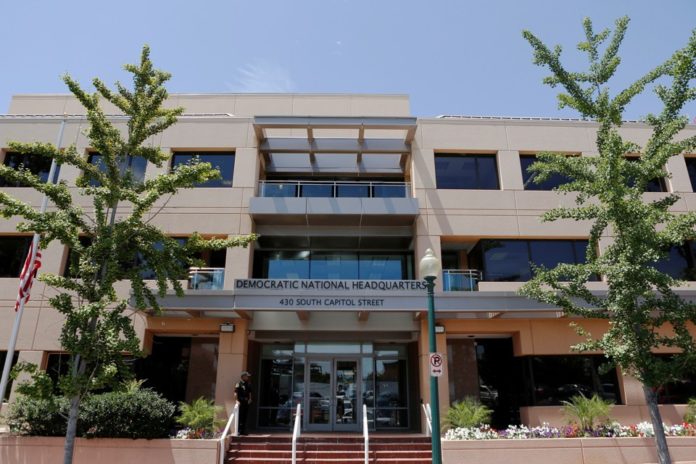One of the many strange artifacts of the fall out of the 2016 U.S. Presidential election is a phenomenon in which the political left seems to be embracing a more war-hawkish position than the political right – at least when it comes to one country.
The U.S. has been inching towards more hostility with Russia for quite a while. In 2014, a controversial referendum led to Russia annexing Ukraine, but the U.S. led an effort within the UN to declare the referendum illegal. Due to that perceived invasion of Ukraine by Russia, the United States took a hard and fast position against the expansion of Russia into NATO territory. As far as the people of Ukraine went – their views were divided, but a group of Ukraine government officials testified against the U.S. in Moscow, calling U.S. actions the “most blatant coup in history”.
In 2015, Russia opposed the United States’ position in Syria – while America pushed Syrian president Assad to resign, Russia took Assad’s side. The two nations fought with each other, to the detriment of the Syrian people, over what needed to be done about the ongoing and horrific Syrian Civil War.
And then, in 2016 during the presidential campaign, several U.S. security officials began raising concerns that Russia was actively working to influence the election. Major cyber-hackings and leaks were surfacing, mostly exposing malpractice by the Democratic party and the Hillary Clinton campaign during her primary battle against Democratic candidate U.S. Senator Bernie Sanders.
Many in the press accused Russia of favoriting Donald Trump, citing a tense relationship between Hillary Clinton and Vladimir Putin during her tenure as Secretary of State. In December 2016, Hillary Clinton would blame her loss, in part, on Russian meddling with the election.
The story of a “bromance” between Vladimir Putin and president Donald Trump would continue to develop and make waves through the media as Donald Trump transitioned into his position as U.S. President. Things really came to a peak when Trump’s former National Security Advisor, Michael Flynn, was exposed for discussing lifting Russian sanctions with a Russian ambassador as far back as December, the same day. He reportedly then lied to Vice President Mike Pence, saying sanctions were not mentioned.
With the sharply divided political climate in the U.S. that all of this occurred in, it’s not too surprising that what would follow was a frenzied fear-mongering campaign against Russia, largely beginning with liberal elites and top ranks of the Democratic party.
I would certainly never claim that any attempts to meddle with our elections shouldn’t be thoroughly investigated and taken very seriously. I would certainly not suggest that the United States should make any sudden moves towards a strong alliance with Russia without a whole lot of investigation, negotiation and diplomatic conversation.
But what I do suggest is that the Democratic party and the American left, in general, need to take a step back, take a deep breath and stop trying to reignite the Cold War over qualms with president Trump.
With all of the information swirling around out there, it can certainly be hard to keep up with what is even really going on. The only big stories we have in which there is substantial evidence to back it up are that Russia interfered with the presidential election, that several members of the Trump administration have ties with Russia, and that Flynn likely discussed lifting Russian sanctions right after Obama announced them.
But now – let me give you another piece of information that might give you some perspective on all of this. There may be a story that lies right at the center of all three of the scandals we’re seeing discussed by the media.
When former President Obama put sanctions on Russia due to several key disputes, he ended up cutting short a deal between a Russian oil company and Exxon Mobile. It was a huge deal -stakeholders called it the 500 billion dollar deal, and economic analysts said it could have been a game changer for the Russian economy.
And if there’s one thing we know about politics, it’s that you won’t really find the truth until you follow the money. Everything from local to state to federal to international policy is dictated by wealthy interests who influence politicians to help them make more money. Could we apply this principle to the situation of Russia, Trump and this $500 billion dollar oil deal?
Well, Donald Trump chose to make Rex Tillerson, former CEO of Exxon, his secretary of state. There have also been numerous reports of possible investment opportunities for Trump associates in this oil deal.
You know, I’m not the most well-connected journalist in the world. And I’m not the top investigative reporter out there. But I can’t help but feel like the dominant narrative around Trump-Russia is ignoring this glaringly obvious hint at what this conflict of interest is all about. I get the feeling more people think Putin is holding a sex tape as blackmail over Trump’s head then that these people are simply heavily invested in lifting Russian sanctions.
If I’m right about this, is it okay for our politicians to make decisions based on huge corporate interests? Of course not – that’s exactly why Americans hate politics so much. But what the Democratic Party and the left are doing with this story is gas-lighting the most important elements of the circumstances around these scandals.
Look at the leaks which supposedly constituted Russia’s interference in the election. Was it coordinated by Russian intelligence? Maybe, even probably. But what was revealed in those leaks was information that Americans needed to know about Hillary Clinton and the Democratic Party. Those leaks confirmed suspicions by supporters of Democratic Presidential Primary candidate Bernie Sanders that the Democratic primary was “rigged” in favor of Clinton. What was revealed there should enrage any Democrat who wants integrity and democracy in their party.
Voter made decisions based on true information that was brought to them. Could Russia have been coordinating an effort to show us information that helped their candidate? Sure. But I can’t quite get as enraged about leaks alone. After all, the United States has interfered in election after election after election in nations across the world. We should be chastising ourselves before calling foul on Russia hypocritically. Let’s wait to see if more evidence arises that there was a coordinated effort between Russia and the Trump campaign to undermine Hillary Clinton before we get too up in arms.
And the ties between Russia and the Trump administration? The ongoing conversations, the possible discussions of lifting sanctions before Trump took office? If this stuff really is tied back in large part to that oil deal – and it seems fairly likely – this is simply the latest chapter in American political history of designing foreign policy around money interests. This is nothing new, as any observer of American politics should know. Why fight Russia on this when we should be fighting a system that allows such corruption?
There are certainly elements to be investigated in all of this, and there are several possible legal fouls on the part of the Trump administration. But I can’t help but feel the Democrats are shooting themselves in the foot by how they choose to talk about this.
Instead of being mad at Russia about those leaks, Democrats should be enraged at their own party for letting them down. They should be working for reform and sending the message to their non-Democratic friends and neighbors that Democratic people want to take down their corrupt party. Now THAT would be persuasive to someone who thinks the Democratic party is made up of a bunch of coastal elites.
Instead of warning of vague and amorphous evils behind the friendly relations between Trump and Russia, Democrats should be raising questions about this oil deal. People from all sides of the political spectrum are sick of seeing money dominate politics. That’s the threat we need to fight against. If leftists made THAT their message, rather than lamenting these scandals in ways that just don’t add up and only reflect hatred of the president, maybe they’d begin changing hearts and minds.
All in all, the last thing we want to do is fan the flames of conflict between ourselves and Russia. We don’t need to be allies, but the escalation of conflict between the U.S. and Russia in recent years has made the whole world less secure. This is not the time to bring back the Red Scare, and I never thought I’d have to tell liberals such a thing.




